MGH Programs
-
Riders Club
Every year, MGH Arena offers students from AIDB the opportunity to try out for an after-school riding team called Riders Club. There are a limited number of slots available and typically 50-60 students try out. Being a member of Riders Club is almost like having your own horse for the year. They learn all aspects of horsemanship, including horse care, ground skills, riding, and competition. They must keep their grades up and demonstrate a team spirit throughout the year.

Hippotherapy
The American Hippotherapy Association, Inc., defines hippotherapy as a physical, occupational, or speech therapy treatment strategy that utilizes equine movement. The word "hippotherapy" derives from the Greek word hippos, meaning horse. The term "hippotherapy" refers to the use of the movement of the horse as a treatment strategy by physical therapists, occupational therapists, and speech/language pathologists to address impairments, functional limitations, and disabilities in patients with neuromotor and sensory dysfunction. This treatment strategy is used as part of an integrated treatment program to achieve functional goals.
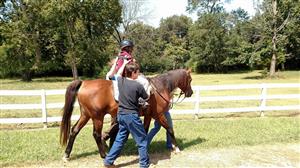
Therapeutic Riding
Therapeutic riding uses equine-oriented activities for the purpose of contributing positively to the cognitive, physical, emotional, and social well-being of people with disabilities. Therapeutic riding provides benefits in the areas of therapy, education, sport, recreation, and leisure.
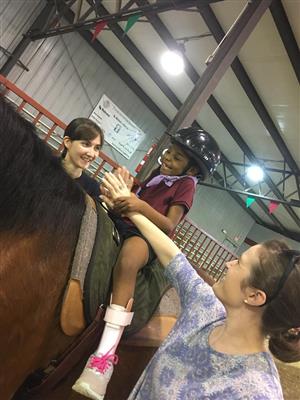
Equine-facilitated learning
Equine-facilitated learning, also known as EFL, is an experiential approach to teaching and learning, with the help of horses for the purpose of promoting human growth and development. In equine-facilitated experiential learning, participants interact with the environment, with one another, with their instructors, and with the animals. Goals of the interaction may include increased knowledge on a wide range of topics and/or self-discovery by participants. Instructors may be credentialed teachers, licensed therapists, equine specialists, horse trainers, veterinarians, PATH Intl.-credentialed Therapeutic Riding Instructors, or other individuals who have training in the processes and procedures of EFL. Effective EFL instructors adhere to PATH Intl. standards and EFMHA guidelines so that the learning occurs with strict attention to the physical, mental, psychological and spiritual safety of all humans and horses involved. Through our Equine Facilitated Mental Health program we are able to provide students the opportunity to receive counseling services that involve an equine partner and provide a safe place for children to learn team building, processing, problem solving, and various other educational skills.
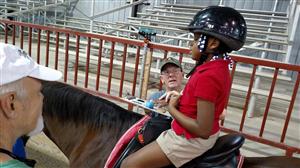
Work Experience Program
MGH hosts a Student Worker Program designed to provide students from all campuses of AIDB with real-life work experience. As they would with real jobs, the students interested in working fill out an official application and are responsible for signing in and out each day to keep an accurate record of their hours earned. The focus of the program is not to teach riding, but to promote an independent work ethic, responsibility, and accountability. Student workers learn to take direction and adapt to different jobs every day as well as how to work with peers and volunteers.
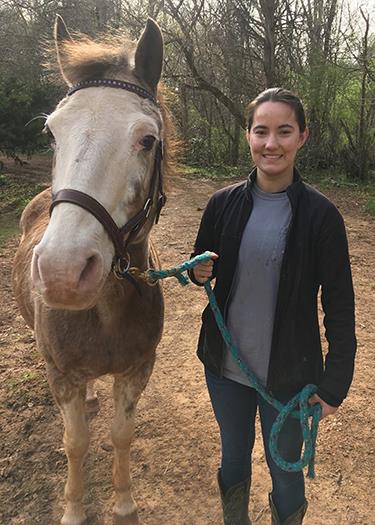
Equine Facilitated Learning
Equine Facilitated Learning (EFL) is an equine-based style of education where a PATH equine specialist collaborates with an educator to provide learning opportunities to a group of students. The possibilities are endless with this lesson style, as the students work towards achieving their classroom goal while having fun with their horse at the same time.
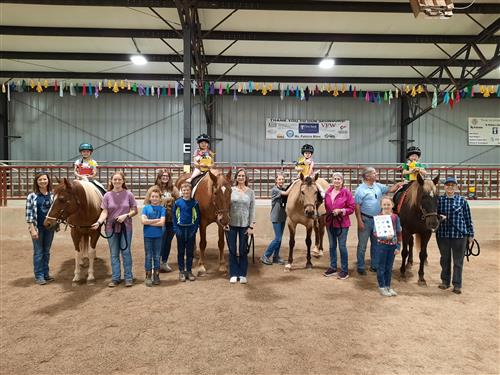
-
Disclaimer: Equine assisted activities and therapies provide many benefits. However, they may not be appropriate for all persons. The Professional Association of Therapeutic Horsemanship Intl. has prepared the following document describing precautions and contraindications related to equine activities.

